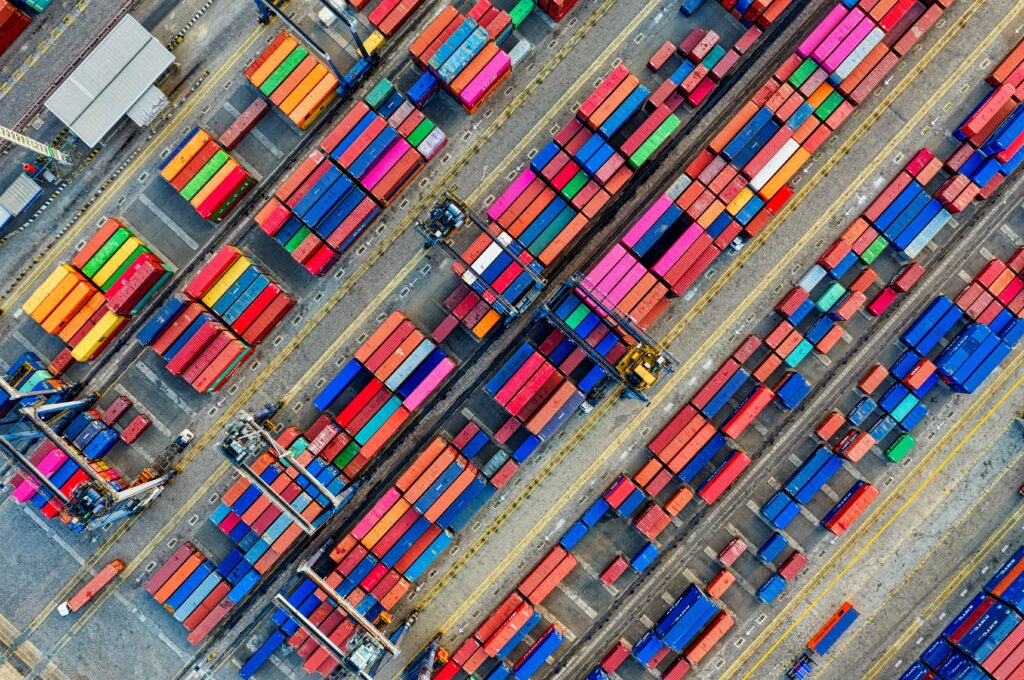Supply chains are under an ever-increasing and changing amount of pressure. However, this pressure can provide great opportunities for digital innovation. The Digital Supply Chain Hub’s Future of Supply Chain Labs are designed to showcase these opportunities to SMEs, challenging their traditional ways of thinking and providing practical insights and inspiration. Emerging technologies can help to maximise competitiveness and improve resilience and sustainability.
A diverse group of SMEs met at the Net Zero Technology Centre in Aberdeen, in November, representing a range of manufacturing and service companies with a shared interest in the renewable energy sector. Alongside keynote presentations from Offshore Energies UK (OEUK), Net Zero Technology Centre, Digital Supply Chain Hub and EDGE Digital Manufacturing, participants learnt about emerging digital technologies and how they are being used to optimise supply chain management. This included presentations and a Q&A with Hannah Tilston, Chief Operating Officer of Versed.AI, a company helping organisations of all sizes identify the true scale of their supply chain, and Brian McCrindle, Chief Operating Officer & Chief Financial Officer from SICCAR, an organisation that support companies to share information securely. Experts from Scottish Enterprise and the Smart Manufacturing Data Hub were also on hand to provide expertise and highlight wider support and funding opportunities.
Common goals
Although every business was different, rationale for joining in the workshop was similar across the board. Businesses wanted to explore the potential to apply new digital technologies to improve their efficiency, resilience and sustainability.
“We simply wish to build an understanding of potential requirements in order to achieve competitive excellence within the Renewables sector.”
Some of the topics explored during the lab included:
- Demonstrating ethical sourcing and compliance with customer trading requirements
- Measuring and designing to reduce emissions on-site and post-manufacture (Scope 3)
- Collaborating with confidence using secure and permission-led digital tools and services
“That was really helpful - getting us thinking about next steps with our supply chain. It was great to see the whole landscape of digital as well as to ask questions directly about the presentations”.
Current situation
Keynote talks from OEUK and NZTC built on recent research to highlight the need for innovation in UK companies eager to be competitive in the evolving Scottish renewable energy. They demonstrated that:
- Expenditure on offshore wind capital investment and operations will be £25bn by 2030
- Supply chains will increase in complexity, requiring greater collaboration
- Data and digital technology innovation is vital for agility and competitiveness
- Digital maturity is increasing, but strategy is weak especially in relation to data
- Regulation of material use will be more stringent
- Skills shortages are a significant barrier to supply chain performance
- Data sharing is still seen as a threat but is needed for effective collaboration
The challenges
What were some of the supply chain challenges discussed on the day?
- SMEs want more guidance on where to start with their digital journey and more clarity on their customers’ specific needs
- Internal systems and processes continue to prove a barrier with challenges including integration, collaboration, upgrading legacy systems, duplication of data entry and reliance on spreadsheets
- SMEs highlighted the importance of certifications, standards, and compliance with regulatory requirements, including insurance considerations
- Recruiting people with the right data and digital skills and putting in place effective change management processes were identified
Notwithstanding these challenges, all participants were enthusiastic about the future opportunities to adopt technologies such as artificial intelligence and automation within their businesses; and the potential to leverage new technologies to win and deliver larger contracts. There was also interest in exploring collaborative and off-the-shelf supplier management solutions rather than building bespoke technology from scratch.
Using artificial intelligence to improve visibility
Participants discussed the lack of visibility across their supply chain. Artificial intelligence solutions can provide sub-tier supply chain visibility by using multiple data sources including client data and external datasets, as well as computer vision and natural language processing AI. Benefits from this visibility include proactive risk management with greater awareness of disruption associated with environmental factors, as well as regulatory compliance such as reporting requirements under the Modern Slavery Act.
Sharing data securely to track emissions
Data management challenges were also discussed including how to ensure access to secure and trustworthy data, with many companies still reliant upon sharing spreadsheets. Participants explored a use case relating to sharing emissions data to measure and monitor Scope 3 emissions as part of ongoing efforts to reach Net Zero. A distributed data register, using blockchain technologies, can be used to both share and validate ESG data with external partners at every stage of operations. Data processes can also be automated to ensure repeatability and avoid manual processes which themselves would not be secure or verifiable.
Using data to manage costs and improve sustainability
Companies have access to data but do not always have the expertise to use it effectively. Data analysis can identify patterns and insights faster than the human eye. Comparing factory energy consumption can highlight potential cost savings and ways to reduce emissions. Participants learnt about how the Smart Manufacturing Data Hub is helping SME manufacturers to identify and eliminate unproductive energy use.
Get involved
To find out more about future events, funding opportunities and the launch of the Digital Supply Chain’s Virtual Hub, which aims to be a central hub for the supply chain ecosystem, please sign up to our newsletter here.




